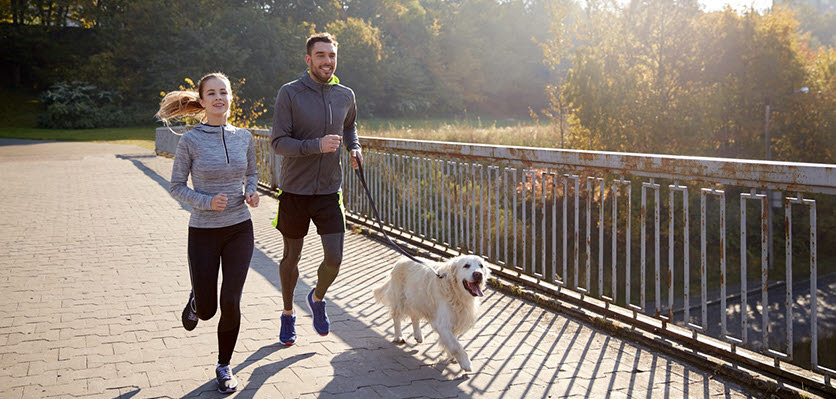
It can be hard to go to work when your dog stares at you with pleading eyes every day. As dogs are social animals, they love to spend time with us and can become lonely and bored when left alone for long periods. The good news is, there are several steps you can take to keep your pet entertained when you’re not home.
Regular walking routines
Taking your dog for a walk every morning before you leave as well as when you get home provides multiple benefits. It gives your dog a chance to go to the toilet, provides a predictable routine which helps with toilet training and gives structure to your dog’s day.
It’s important to provide your dog with a predictable routine to avoid toileting accidents throughout the day, and to give them an idea of when you might come home. Walking your dog just before you leave will also give them a chance to burn off some energy, allow them to have a nice long sleep during the day only to be ready for their afternoon walk when you return.
Toys and puzzle feeders
Although dogs of all ages enjoy playing with toys and puzzle feeders, it’s particularly important to provide enough entertainment for younger dogs that are left alone for long periods.
Rotate toys to keep them fresh and exciting and provide most of your dog’s food in puzzle feeders and treat dispensing toys to get them to work for their food. All toys and puzzle feeders should be safe to be used unsupervised, and no toys should be left out that could present a choking hazard if chewed.
Schedule company
Another option to keep your pet entertained during the day is to schedule walks or visits. Asking a friend or family member to pop around during the day to play with your dog and take them for a walk is a nice way of breaking up your dog’s day.
Alternatively, you could pay a dog walker to take your pet out. Another option is to book your dog into ‘doggy daycare’ one or two days per week, to provide opportunities for your dog to socialise. Daycare centres provide supervised playtime for dogs and are often found in larger cities.
Auditory and visual stimulation
If your dog tends to bark when left alone, it might be worth turning the TV or radio on quietly in the background to provide some background noise. There are now TV channels for dogs, which have been designed to catch the eye of our canine companions. Additionally, if your property has a window overlooking a busy sidewalk or road, ensuring your dog can see out the window gives them further visual stimulation and allows them to watch the world go by.
If you find your dog is not coping when you leave them alone, and displays destructive behaviour or is barking excessively, chat to your veterinarian for further advice.
